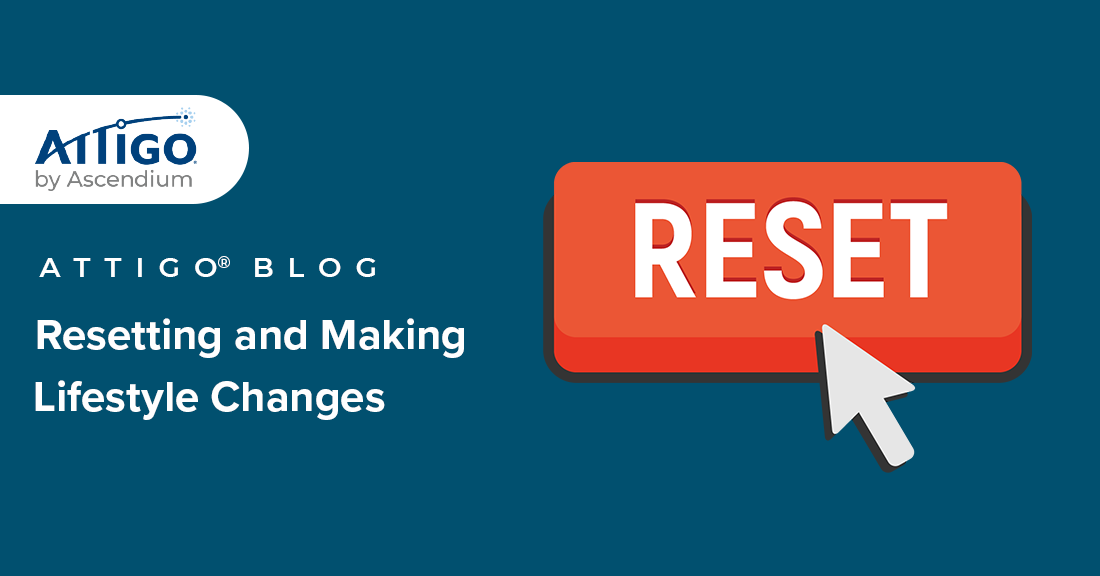Resetting and Making Lifestyle Changes

Since March 2020 when the World Health Organization declared a global pandemic, stress levels have increased for many people. In addition to the health crisis reshaping our lives, other factors have triggered stress including racial tension, politics and natural disasters. These are just some of the stressors that can leave a person feeling emotionally and physically drained.
The topic of mental health recently became a major focus at the Summer Olympics in Tokyo when several athletes acknowledged they were being affected by the pressure and isolation. Then a few days into the games, seven-time Olympic medalist Simone Biles withdrew from competition citing she was not mentally able to compete.
It was encouraging to hear some of my favorite athletes address their mental health. Affirming that it’s “okay to not be okay” helps to chip at the negative stigma associated with the subject. By acknowledging their mental health issues, it made them more human and self-aware. I hope the momentum they’ve generated continues to build. Conversations on mental health are too important to ignore. As a health coach, I’ve been educating and encouraging others to prioritize their physical and mental health for quite some time. Both are equally essential to our overall well-being.
Signs of Stress
The body will send signs if something is not running smoothly and may signal that an area of our lives has gone off track. Recognizing and responding to these red flags are essential to preventing serious or long-term health issues. Some signs should be followed up with a medical professional, while others may be resolved by making changes to the way we live, work or think. If we don’t tend to our health — physical or mental — it can affect the body’s entire system.
Resetting to Move Forward
Resetting may be the key to getting back on track or forging a new path. When we’re overwhelmed by competing responsibilities and continuous challenges, it may be difficult to make sound changes. Our judgement may be clouded or we might feel too stuck to move beyond the circumstances. Resetting is a process for assessing what’s working and what’s not and determining the changes you want to make. It can also be used to find your purpose or to adjust to a significant life event.
Resetting can be utilized to check in with yourself at any time or at any place you desire. While there are no rules or required format to follow, here are a few tips to get you on your way.
- Self-reflect. Reflect on your strengths, habits, values, priorities and goals. You may also want to assess relationships, finances and current commitments. Gaining perspective helps you determine what you want out of life.
- Re-evaluate priorities. Identify your top priorities and determine if they align with your values. For example, if your top value is health but other priorities are getting in the way of maintaining a healthy lifestyle, then it may be necessary to rearrange your priorities. Once you have determined what’s most important, put a boundary around them.
- Assess habits. Identify the routines or behaviors you perform most every day. These activities are habits and they are often done unconsciously. Continue the habits that help you complete your top priorities and discontinue the ones that don’t.
- Create a plan. Outline the goals you want to accomplish based on your reevaluated priorities. Determine what’s needed to help you move forward and what you’ll need to maintain progress towards the goals. Put your goals in writing on a vision board or in a journal. This helps to make them real and tangible.
- Evaluate health and wellness. The ability to manage stress and maintain physical and mental well-being requires making conscious choices that support health and wellness. These choices include nutrition, hydration, exercise, laughter, sleep and relaxation.
A reset may be needed when the pendulum swings heavily in one direction and you feel off-balance, overwhelmed or discontent. It may be needed when a life-changing event requires adjusting to a new normal or making a fresh start. A reset can also help relationships get back on track. Think of resetting as your personal empowerment switch designed to enhance the quality of your life.
Join Us to Learn More
To learn more on making lifestyle changes and finding balance and fulfillment, join our SmartSessions webinar, Hitting the Reset Button on Oct. 12 at 11:00 a.m. CDT.



